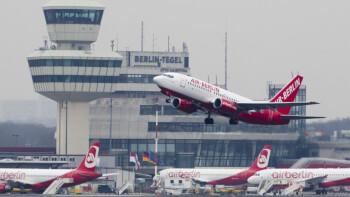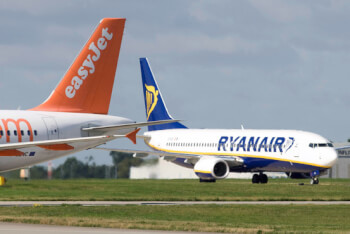Budget airline saw losses widen to £236m due to Brexit-induced currency fall and Easter timing
Companies: easyJet plc
Budget-Airline EasyJet reported a half-year loss of £236m this morning, saying that currency pressures from the sterling collapse and the timing of Easter had hit its bottom line despite record passenger figures and growth in revenue.
Total revenue rose 3.2% to £1.8bn, with passenger numbers reaching record levels of 33.8m, 9% up YoY. However, revenue per seat fell nearly 5% (10% constant currency) to £49 due to the timing of Easter and high overall market capacity growth.
The FTSE100 airline, one of the fastest ever entrants to the index, said pre-tax losses had grown from £18m last year to a whopping £236m, with LPS (loss-per-share) increasing to 43.8p from 4.6p last year.
Panmure Gordon said Winter trading had been as bad as feared, with a 10% fall in revenue-per-seat causing the H1 miss. Analyst Mark Irvine-Fortescue said the stock needed an upgrade to aid the recent share price rally:
"Q3 trading confirms a marked improvement; encouraging but expected, and we expect no change to FY consensus... too much hope that better long-haul trading seen at flag carriers would come to pass in short-haul too. Our SELL rating reflects the stuttering growth profile, with ROCE trending down towards WACC, dividend uncovered by FCF and rising leverage."
CEO Carolyn McCall said the results were in line with expectations, adding that the company had delivered resilient performance during the Winter thanks to strong cost control, but that the movement of Easter into the second half of the year and the fall in the pound had cost the business an estimated £127m on the bottom line.
"Looking ahead, we are seeing an improving revenue per seat trend as well as the continued reduction of competitor capacity growth. Cost performance for the full year will continue to be strong... As a result our expectations for the full year are in line with current consensus market expectations."
Shares in EasyJet dropped 6% early this morning, ending the 30% rally shareholders have enjoyed since February. Earlier this year, EasyJet stock fell markedly after it revealed the Brexit-induced currency collapse had had a bigger impact than previously expected.








